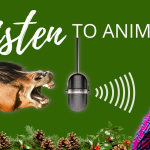
In our daily lives, both humans and animals can experience off days when we’re not feeling our best. It’s important to recognize these moments and take action to address them.
Have you ever had an off day? I have, more often than I would like to admit! And guess what? Your animals have off days too. We’re all in this together, experiencing the ups and downs of life.
The good news is that there are things you can do to help yourself and your animal companions when you’re feeling off. And it all starts with checking your HALT.
What is HALT?
HALT stands for Hungry, Angry, Lonely, and Tired.
Each letter represents a specific meaning and action you can take to support yourself and your animals. So, let’s dive deeper into each component of HALT.
H is for Hungry
When you’re feeling off, ask yourself if you’re hungry. Our bodies need fuel, and eating something healthy can make a significant difference in how we feel. Similarly, our animal companions may also exhibit signs of being off when they’re hungry. Pay attention to their cues and make sure they’re getting the nourishment they need.
A is for Angry
Anger is a powerful emotion that can affect you and your animals. If you’re feeling angry, take a moment to pause and breathe. Recognize the anger and find ways to release it, such as taking a nice slow deep breath or engaging in activities that bring you peace. When we’re less angry, our animals respond to us differently, creating a more harmonious environment.
L is for Lonely
Feeling lonely can contribute to a sense of sadness and depression. Combat loneliness by reaching out to loved ones, friends, or family members. A simple phone call or video chat can make a world of difference. If connecting with humans feels challenging, spending time with animals can also alleviate loneliness. Volunteer at a local rescue or shelter, where you can bond with animals and provide them comfort too. You will be happy you did.
T is for Tired
When you’re exhausted, you can often push yourself to keep going, but this can lead to crankiness and feeling out of sync. Take a moment to assess if you’re tired and in need of rest. Whether it’s a short nap or a good night’s sleep, prioritize self-care. Animals also need sufficient rest, and by being aware of their tiredness, we can create an environment that promotes better well-being.
Checking Your HALT
To show up as our best selves and support our animal companions, it’s essential to regularly check our HALT.
Ask yourself if you’re hungry, angry, lonely, or tired. Often, we might identify with more than one aspect or check all the boxes.
The key is to take action to address each factor.
- For hunger, nourish your body with healthy food.
- To manage anger, practice techniques like deep breathing and letting go of fear.
- Combat loneliness by connecting with loved ones or spending time with animals.
- And when tired, prioritize rest and rejuvenation.
Remember, our animal companions can reflect our emotions and well-being. By paying attention to their halt, we can ensure their needs are met too. Engage with them, offer love, and provide the stimulation they require to maintain a healthy state.
The concept of HALT—Hungry, Angry, Lonely, and Tired—reminds us to take care of ourselves and our animal companions when we’re feeling off. By addressing these fundamental aspects of well-being, we can lead happier, richer lives together. So the next time you’re not feeling like your best self, stop, and check your HALT. Take the necessary steps to nurture yourself and create a loving, supportive environment for your animal companions.
Watch the video here
Let me know what you do to check your HALT? How are your animals affected if your HALT is off?
Please share in the comments. I can’t wait.







